#[world building]
Note
youre orc design is really different from what i've read before on orcs. how did you decide to make them that way?
Thank you! I'm flattered! Though, I don't think anything I've written is ground breaking necessarily. My orcs are maybe just bigger than some other creator's orcs.
In my stories, an average orc male height is 6.5ft - 8.5ft
I also decided to give them less human genitalia in the NSFW stories I've posted.
And depending on the clan or bloodline they're from, you'll get to know more about the unique qualities they have.
Lazgar from In Fernhollow, for example has tusks growing out of his cheeks as well as two sets of front tusks making him an intimidating figure, in my opinion.
But I'm pulling a lot of design inspiration from pigs for my orcs, and for Laz, more specifically a Babirusa boar.
I'll just end this by saying that I have some other Orc boys that I am really excited to put their stories out there.
#Midnight asks#orc lore#lore drop#non human genitalia#Orc boyfriend#monster boyfriend#orc design#terato#monster romance#character design#orc oc#world building#fantasy world building#monster lover#monster fucker#teratophillia#monster x human
26 notes
·
View notes
Text
it's way too easy to go insane when world building
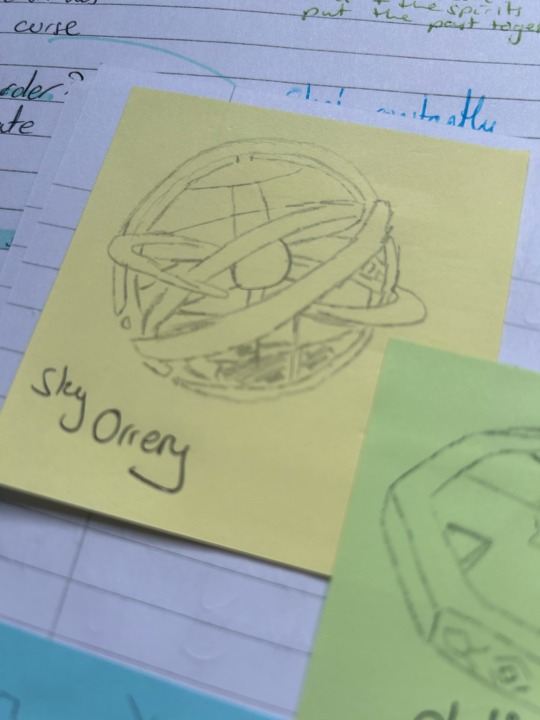
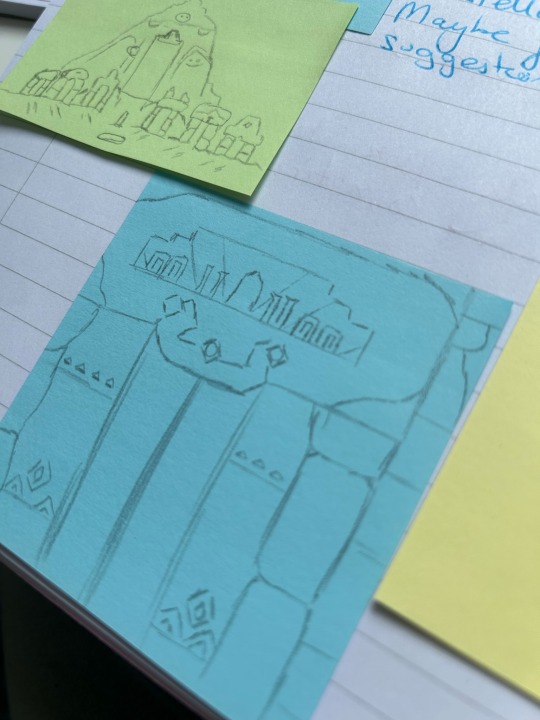
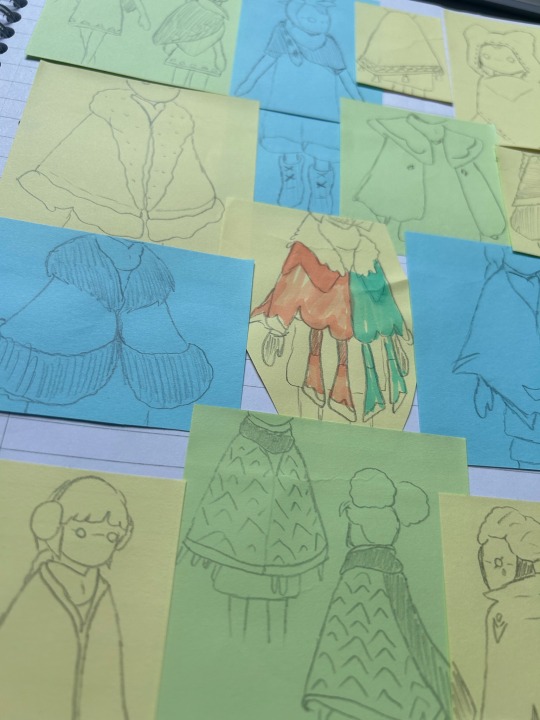
creating an isat au / doing world building for it and taken inspiration from sky children of the light as always - these are some older notes from a book i've filled way too much on just the basis notes
i need to pull this world together </3
wait until i start to actually do set drawings with other architecture designs, maps and fashion - not even getting into how siffrin is involved
36 notes
·
View notes
Text
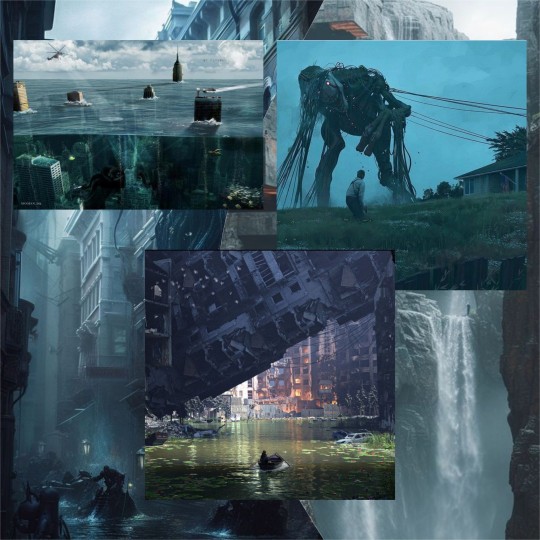
From Sector: 38
Entry : Nulla
When the world ended, it didn't just split and divide—it wasn’t like the films. There wasn’t fire raining down from the skies or incurable diseases, and countries weren’t always at war. In fact, I’m not sure we even still have any of those, countries that is, not after the flood.
Scientists in pristine white jackets had warned us. They told us that the shore was creeping closer and closer. Fishermen complained that their yields were way off predictions, but those politicians with their canine smiles tricked us.
We thought nothing would change, and then it did - hundreds, thousands, millions, and then the whole world—everyone was touched by the waters. The edges came closer and closer until there wasn’t a dry patch the size of a penny. The whole world is wet, damp—but that would imply that the water has left us, bid us farewell after the tragedy and onslaught it brought. But it hasn’t, and it won’t. The world is drowning itself and us.
Sometimes I look up at the blue sky and wonder if that was our warning.Maybe years ago, before we even began to count the years as they trickled by, the world whispered a warning, a promise: that one day the world would flood. The only remnants now are the hue of the atmosphere.
We live on floating chunks of metal that stretch far beyond the eye, like the governments still trying to convince us that nothing’s wrong and nothing’s changed. It happened so fast even the billionaires couldn’t get away. Their bones are soaked to the core like the rest of us.
Though we’re soaked in water, they’re soaked in scarlet.
I live on Colony 38. I’d tell you we’re friendly and hardworking—the section most known for getting things done fast and right—but the new world is too new for stereotypes or generalizations. We’re not known for anything or for having anyone—pilots, paupers, princesses, and politicians—none of that matters anymore.
Maybe it could have when it was just the flood, but not now, not after them.
Not after the monsters came.
#tw monsterfucking#monster x human#macrophilia#monster x reader#tentacle#tentacles#monster fucker#world building#interactive novel#chapter 1#Sector:38
22 notes
·
View notes
Text
a list of 100+ buildings to put in your fantasy town
academy
adventurer's guild
alchemist
apiary
apothecary
aquarium
armory
art gallery
bakery
bank
barber
barracks
bathhouse
blacksmith
boathouse
book store
bookbinder
botanical garden
brothel
butcher
carpenter
cartographer
casino
castle
cobbler
coffee shop
council chamber
court house
crypt for the noble family
dentist
distillery
docks
dovecot
dyer
embassy
farmer's market
fighting pit
fishmonger
fortune teller
gallows
gatehouse
general store
graveyard
greenhouses
guard post
guildhall
gymnasium
haberdashery
haunted house
hedge maze
herbalist
hospice
hospital
house for sale
inn
jail
jeweller
kindergarten
leatherworker
library
locksmith
mail courier
manor house
market
mayor's house
monastery
morgue
museum
music shop
observatory
orchard
orphanage
outhouse
paper maker
pawnshop
pet shop
potion shop
potter
printmaker
quest board
residence
restricted zone
sawmill
school
scribe
sewer entrance
sheriff's office
shrine
silversmith
spa
speakeasy
spice merchant
sports stadium
stables
street market
tailor
tannery
tavern
tax collector
tea house
temple
textile shop
theatre
thieves guild
thrift store
tinker's workshop
town crier post
town square
townhall
toy store
trinket shop
warehouse
watchtower
water mill
weaver
well
windmill
wishing well
wizard tower
#worldbuilding#setting prompts#writer resources#writing inspiration#writing prompts#scene settings#writing reference#writing ideas#prompt list#creative writing#writing community#writer prompts#writing tips#world#fantasy world#fantasy worldbuilding#high fantasy#world building#epic fantasy#writing fantasy
29K notes
·
View notes
Text
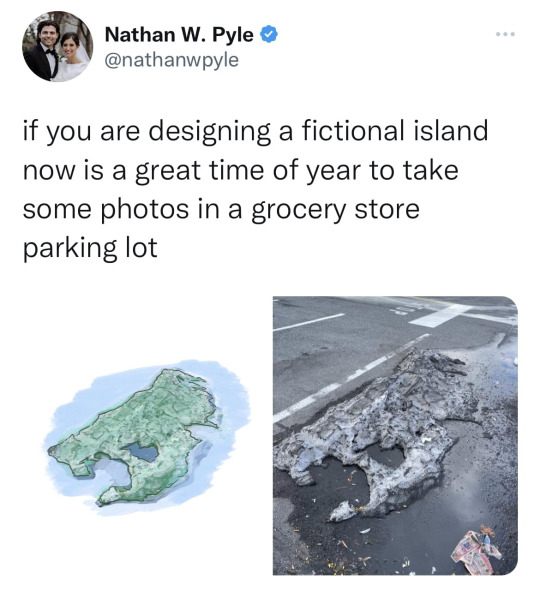
This came across my Facebook feed, felt I’d share it.
48K notes
·
View notes
Text
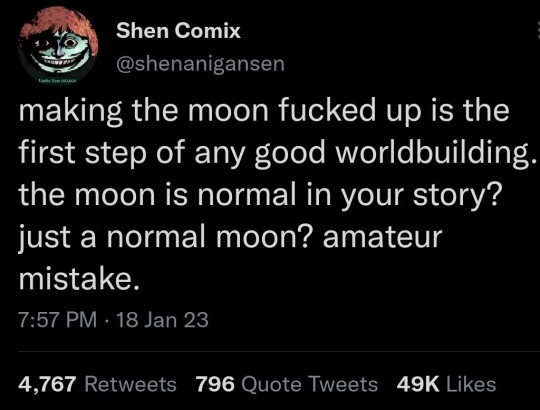
56K notes
·
View notes
Text
WORLD BUILDING CHECKLIST
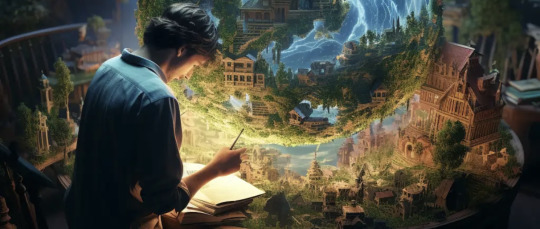
If you are writing a book/story that takes place in another world, I have provided for you the complete world building checklist to ensure that you know your world inside out.
Economy
A. Currency
B. Poverty rate/line
Government
A. Crime & Legal System
B. Foreign Relations
C. Politics
D. War
The Land
A. Physical & Historical Features
B. Climate
C. Geography
D. Natural Resources
E. Population
Society & Culture
A. Arts, Entertainment, & Recreation
B. Architecture
C. Calendar
D. Daily Life.
E. Diet
F. Ethics & Values
G. fashion & Dress
H. History
I. Dining Customs
J. Education
K. Language
L. Gestures
M. Manners
N. Meeting & Greeting
O. Religion & Philosophy
P. Social organization
Magic
A. Magicians
B. Magic and science
C. Magic & Technology
D. Rules of Magic
Technology
C. Technology
D. Medicine
D. Transportation & Communication
you're welcome <3
Fell free to reblog and fill it out if you want. I am curious to see the worlds in my fellow writers heads.
Follow me @leisureflame for more posts like this!
4K notes
·
View notes
Text
How Do I Make My Fictional Gypsies Not Racist?
(Or, "You can't, sorry, but…")
You want to include some Gypsies in your fantasy setting. Or, you need someone for your main characters to meet, who is an outsider in the eyes of the locals, but who already lives here. Or you need a culture in conflict with your settled people, or who have just arrived out of nowhere. Or, you just like the idea of campfires in the forest and voices raised in song. And you’re about to step straight into a muckpile of cliches and, accidentally, write something racist.
(In this, I am mostly using Gypsy as an endonym of Romany people, who are a subset of the Romani people, alongside Roma, Sinti, Gitano, Romanisael, Kale, etc, but also in the theory of "Gypsying" as proposed by Lex and Percy H, where Romani people are treated with a particular mix of orientalism, criminalisation, racialisation, and othering, that creates "The Gypsy" out of both nomadic peoples as a whole and people with Romani heritage and racialised physical features, languages, and cultural markers)
Enough of my friends play TTRPGs or write fantasy stories that this question comes up a lot - They mention Dungeons and Dragons’ Curse Of Strahd, World Of Darkness’s Gypsies, World Of Darkness’s Ravnos, World of Darkness’s Silent Striders… And they roll their eyes and say “These are all terrible! But how can I do it, you know, without it being racist?”
And their eyes are big and sad and ever so hopeful that I will tell them the secret of how to take the Roma of the real world and place them in a fictional one, whilst both appealing to gorjer stereotypes of Gypsies and not adding to the weight of stereotyping that already crushes us. So, disappointingly, there is no secret.
Gypsies, like every other real-world culture, exist as we do today because of interactions with cultures and geography around us: The living waggon, probably the archetypal thing which gorjer writers want to include in their portrayals of nomads, is a relatively modern invention - Most likely French, and adopted from French Showmen by Romanies, who brought it to Britain. So already, that’s a tradition that only spans a small amount of the time that Gypsies have existed, and only a small number of the full breadth of Romani ways of living. But the reasons that the waggon is what it is are based on the real world - The wheels are tall and iron-rimmed, because although you expect to travel on cobbled, tarmac, or packed-earth roads and for comparatively short distances, it wasn’t rare to have to ford a river in Britain in the late nineteenth century, on country roads. They were drawn by a single horse, and the shape of that horse was determined by a mixture of local breeds - Welsh cobs, fell ponies, various draft breeds - as well as by the aesthetic tastes of the breeders. The stove inside is on the left, so that as you move down a British road, the chimney sticks up into the part where there will be the least overhanging branches, to reduce the chance of hitting it.
So taking a fictional setting that looks like (for example) thirteenth century China (with dragons), and placing a nineteenth century Romanichal family in it will inevitably result in some racist assumptions being made, as the answer to “Why does this culture do this?” becomes “They just do it because I want them to” rather than having a consistent internal logic.
Some stereotypes will always follow nomads - They appear in different forms in different cultures, but they always arise from the settled people's same fears: That the nomads don't share their values, and are fundamentally strangers. Common ones are that we have a secret language to fool outsiders with, that we steal children and disguise them as our own, that our sexual morals are shocking (This one has flipped in the last half century - From the Gypsy Lore Society's talk of the lascivious Romni seductress who will lie with a strange man for a night after a 'gypsy wedding', to today's frenzied talk of 'grabbing' and sexually-conservative early marriages to ensure virginity), that we are supernatural in some way, and that we are more like animals than humans. These are tropes where if you want to address them, you will have to address them as libels - there is no way to casually write a baby-stealing, magical succubus nomad without it backfiring onto real life Roma. (The kind of person who has the skills to write these tropes well, is not the kind of person who is reading this guide.)
It’s too easy to say a list of prescriptive “Do nots”, which might stop you from making the most common pitfalls, but which can end up with your nomads being slightly flat as you dance around the topics that you’re trying to avoid, rather than being a rich culture that feels real in your world.
So, here are some questions to ask, to create your nomadic people, so that they will have a distinctive culture of their own that may (or may not) look anything like real-world Romani people: These aren't the only questions, but they're good starting points to think about before you make anything concrete, and they will hopefully inspire you to ask MORE questions.
First - Why are they nomadic? Nobody moves just to feel the wind in their hair and see a new horizon every morning, no matter what the inspirational poster says. Are they transhumant herders who pay a small rent to graze their flock on the local lord’s land? Are they following migratory herds across common land, being moved on by the cycle of the seasons and the movement of their animals? Are they seasonal workers who follow man-made cycles of labour: Harvests, fairs, religious festivals? Are they refugees fleeing a recent conflict, who will pass through this area and never return? Are they on a regular pilgrimage? Do they travel within the same area predictably, or is their movement governed by something that is hard to predict? How do they see their own movements - Do they think of themselves as being pushed along by some external force, or as choosing to travel? Will they work for and with outsiders, either as employees or as partners, or do they aim to be fully self-sufficient? What other jobs do they do - Their whole society won’t all be involved in one industry, what do their children, elderly, disabled people do with their time, and is it “work”?
If they are totally isolationist - How do they produce the things which need a complex supply chain or large facilities to make? How do they view artefacts from outsiders which come into their possession - Things which have been made with technology that they can’t produce for themselves? (This doesn’t need to be anything about quality of goods, only about complexity - A violin can be made by one artisan working with hand tools, wood, gut and shellac, but an accordion needs presses to make reeds, metal lathes to make screws, complex organic chemistry to make celluloid lacquer, vulcanised rubber, and a thousand other components)
How do they feel about outsiders? How do they buy and sell to outsiders? If it’s seen as taboo, do they do it anyway? Do they speak the same language as the nearby settled people (With what kind of fluency, or bilingualism, or dialect)? Do they intermarry, and how is that viewed when it happens? What stories does this culture tell about why they are a separate people to the nearby settled people? Are those stories true? Do they have a notional “homeland” and do they intend to go there? If so, is it a real place?
What gorjers think of as classic "Gipsy music" is a product of our real-world situation. Guitar from Spain, accordions from the Soviet Union (Which needed modern machining and factories to produce and make accessible to people who weren't rich- and which were in turn encouraged by Soviet authorities preferring the standardised and modern accordion to the folk traditions of the indigenous peoples within the bloc), brass from Western classical traditions, via Balkan folk music, influences from klezmer and jazz and bhangra and polka and our own music traditions (And we influence them too). What are your people's musical influences? Do they make their own instruments or buy them from settled people? How many musical traditions do they have, and what are they all for (Weddings, funerals, storytelling, campfire songs, entertainment...)? Do they have professional musicians, and if so, how do those musicians earn money? Are instrument makers professionals, or do they use improvised and easy-to-make instruments like willow whistles, spoons, washtubs, etc? (Of course the answer can be "A bit of both")
If you're thinking about jobs - How do they work? Are they employed by settled people (How do they feel about them?) Are they self employed but providing services/goods to the settled people? Are they mostly avoidant of settled people other than to buy things that they can't produce themselves? Are they totally isolationist? Is their work mostly subsistence, or do they create a surplus to sell to outsiders? How do they interact with other workers nearby? Who works, and how- Are there 'family businesses', apprentices, children with part time work? Is it considered 'a job' or just part of their way of life? How do they educate their children, and is that considered 'work'? How old are children when they are considered adult, and what markers confer adulthood? What is considered a rite of passage?
When they travel, how do they do it? Do they share ownership of beasts of burden, or each individually have "their horse"? Do families stick together or try to spread out? How does a child begin to live apart from their family, or start their own family? Are their dwellings something that they take with them, or do they find places to stay or build temporary shelter with disposable material? Who shares a dwelling and why? What do they do for privacy, and what do they think privacy is for?
If you're thinking about food - Do they hunt? Herd? Forage? Buy or trade from settled people? Do they travel between places where they've sown crops or managed wildstock in previous years, so that when they arrive there is food already seeded in the landscape? How do they feel about buying food from settled people, and is that common? If it's frowned upon - How much do people do it anyway? How do they preserve food for winter? How much food do they carry with them, compared to how much they plan to buy or forage at their destinations? How is food shared- Communal stores, personal ownership?
Why are they a "separate people" to the settled people? What is their creation myth? Why do they believe that they are nomadic and the other people are settled, and is it correct? Do they look different? Are there legal restrictions on them settling? Are there legal restrictions on them intermixing? Are there cultural reasons why they are a separate people? Where did those reasons come from? How long have they been travelling? How long do they think they've been travelling? Where did they come from? Do they travel mostly within one area and return to the same sites predictably, or are they going to move on again soon and never come back?
And then within that - What about the members of their society who are "unusual" in some way: How does their society treat disabled people? (are they considered disabled, do they have that distinction and how is it applied?) How does their society treat LGBT+ people? What happens to someone who doesn't get married and has no children? What happens to someone who 'leaves'? What happens to young widows and widowers? What happens if someone just 'can't fit in'? What happens to someone who is adopted or married in? What happens to people who are mixed race, and in a fantasy setting to people who are mixed species? What is taboo to them and what will they find shocking if they leave? What is society's attitude to 'difference' of various kinds?
Basically, if you build your nomads from the ground-up, rather than starting from the idea of "I want Gypsies/Buryats/Berbers/Minceiri but with the numbers filed off and not offensive" you can end up with a rich, unique nomadic culture who make sense in your world and don't end up making a rod for the back of real-world cultures.
6K notes
·
View notes
Text

As if "swallowed by the earth" is a way to describe someone who's gone missing without a trace, particularly in the woods, but in Ditovo it may be more than just a saying. At least if you believe the many legends and folktales about giant plumsaina, or as they're more commonly known "earth belly". The plant does exist but usually it is only big enough to catch small vertebrates, which it does when prey step onto its camouflaged trap door and fall into the pit of the plant filled with digestive liquid and downward pointing spikes preventing escape. The roots of the plant are for storing nutrients and other substances, as well as firmly anchoring the plant in the ground when prey is thrashing about inside it. In order to reproduce the earth belly sprouts a red flower above the surface, a red flag that may perhaps save the life of one who recognizes it.
#original species#worldbuilding#world building#plant design#fantasy species#fantasy plant#flora#cursed papaya looking spud
3K notes
·
View notes
Text

3K notes
·
View notes
Text

Daily drawing 1531: Whatever magics created the landmark sword, keep it to this day. Only wear from a long forgotten battle marks the blade, Time bearing no power over the strange metal. But to whatever end the sword was forged, Time has claimed its rightful position of being the sole keeper of that memory.
#digital art#procreate#artist#illustration#artists on tumblr#landscape art#landscape#original art#fantasy#fantasy landscape#sword#world building
4K notes
·
View notes
Text
World Building Checklist
Have you ever started writing a story and realized your world has a bunch of unexplained shit and you have to fill in the gaps as you go? Me too, buddy. Me too. Here’s a checklist so that you can fully flesh out your world to the max. (I’m dying)
How does Time work? (Minutes, hours, days, the daylight cycle, years, ect.)
Species (if Fantasy. Will probably make another post on this.)
Countries, Nations, Tribes, ect. (nationalities/ races. Will probably make another post on this.)
The geography of the world (draw a map. Doesnt have to be good. Just for a general idea.)
Rivalries between races (includes prejudice, racism, ect.)
Religions
Technology
The Magic system. (Will probably make a whole other post on this.)
animals, plants, ect.
The sky: Sun, Moon(s), Stars, Constellation, Are there rings? (If the planet has rings)
Educations system
Government system
Politics
Methods of transport (Vehicles)
Medicine
Can’t really think of anything else. If you have more to add then reblog and add to the list! :) bye bee
#writing advice#how to write#creative writing#writers on tumblr#writing#writeblr#world#world building#fantasy worldbuilding#fantasy writing#fantasy tips#Fantasy world building tips#Writing tips#HEAVENLYRAIN’S WRITING TIPS
2K notes
·
View notes
Text
World building.
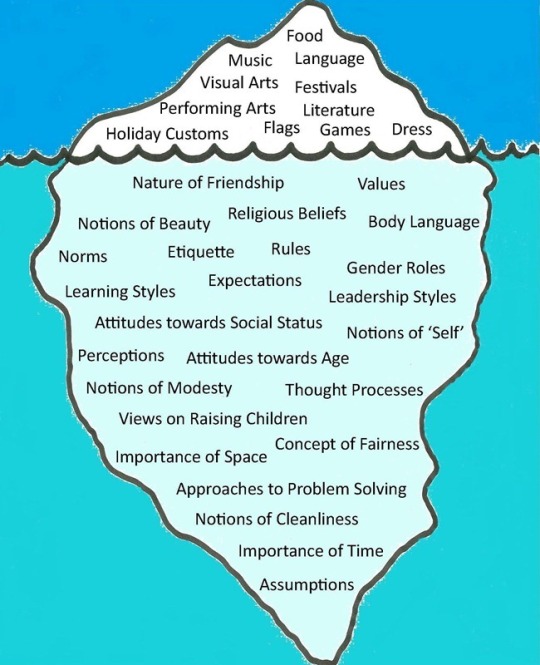
#writblr#writers on tumblr#writing community#writers of tumblr#writers on ao3#world building#writing#writer#writers#writing process#writing stuff#writing meme#writing memes
2K notes
·
View notes
Text
"A New Day Will Dawn."
-Said some guy named Luke probably.
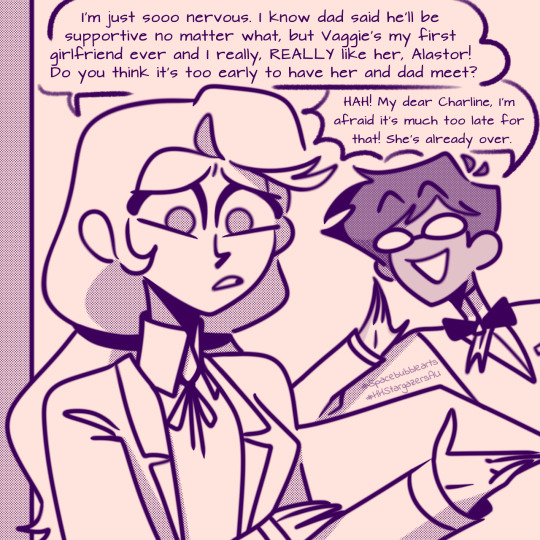

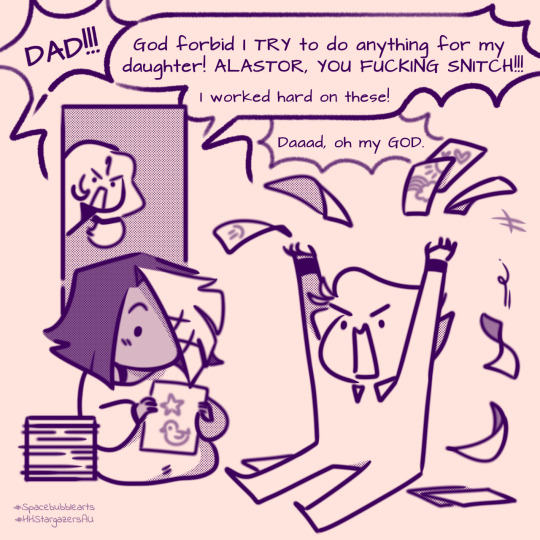
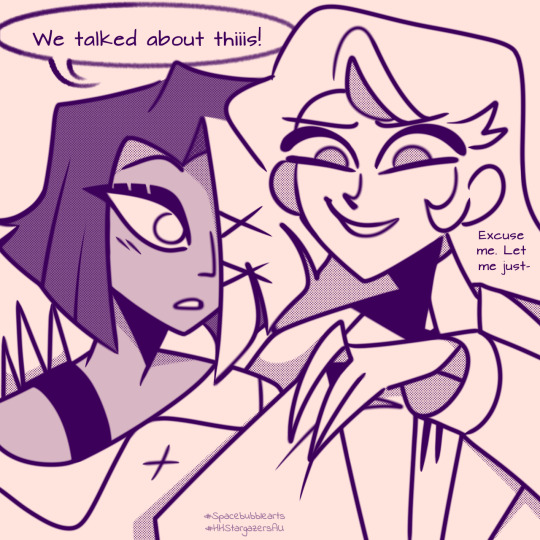



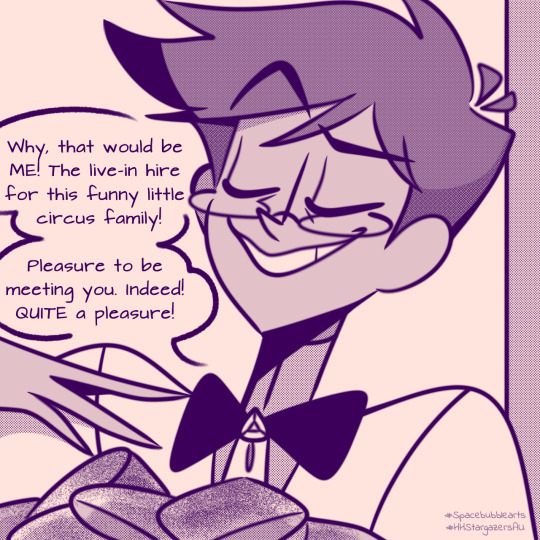
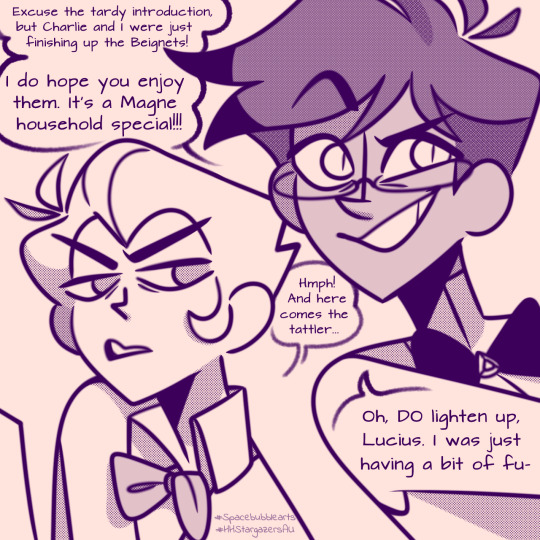

Welcome to my #HHStargazersAU! Stay Tuned~♡? -Bubbly💙
#spacebubblearts#HHStargazersAU#hazbin hotel#chaggie#radioapple#lucifer x alastor#charlie x vaggie#queerplatonic#or not as long as you enjoy this really#hazbin alastor#lucifer morningstar#charlie morningstar#hazbin vaggie#human au#angel#demons#let me COOK#world building#hopefully this was worth it#if ya'll want more do please let me know#I need the motivation haha TvT#vaggie x charlie#alastor x lucifer#appleradio#duckydeer#duckiedeer#humor#mystery#we barely scratched the surface of this AU and I am gonna BURST if I don't share it with anyone else I swear to GOD-#You think you know what's gonna happen? Excuse me while I laugh behind your back for a second NO YOU DON'T XD
2K notes
·
View notes
Text
Want to worldbuild like a pro??
(📖 Master tips and everything I know📖)
Hello writers! You don't know how to worldbuild? Don't know where to start explaining the world you have created? Don't worry, you are in the right place! I have been there myself, and after many research (and even more trial and error) I have put together a list of the best worldbuilding tips I have encountered, and also created some of my own. (I know the first one is kind of overheard, but trust me).
Don't start right away with worldbuilding. A long paragraph about how your world works and its history might overwhelm new readers. A lot of other writers suggest waiting and learning about the world at the same time the protagonist does, or if that doesn't work for your story, dropping bits of information while the story moves forward. However, if you want to give a sense of how your world works from the start...
Exposition through action. This is my favorite method, and it helps a lot if you don't want to pause your story to info dump about the world you have created. Instead, this method relies on explaining the world and its dynamics while you continue with the narrative, briefly. For example: "As always, you couldn't see any trees in the meadow. The king had ordered years ago to cut each one of them because of a prophecy that foretold that the last dragon egg would lay in an oak."
Use expressions that reference normality or routines. In the last point, we used "as always", but there are tons of expressions you could use in your writing. This helps the reader understand what is the norm in this new world and what things are common, to later detect something that is not within that norm (or sometimes just to understand the world and its traditions better).
Use flashbacks when necessary. If you need to explain a very specific or detailed topic, I suggest using a flashback scene, that will help the reader understand with the narration and dialogue, instead of just explaining it to them. It makes for a more dynamic learning experience. But, at the end...
Do whatever will intrigue you. Some readers even like info dumps, and there is not one correct way to show your world. If it would make you curious, go and do it, wether people say it's correct or not. There are a lot of successful books that randomly stop to explain something about the world, and there is nothing wrong with that if you like it.
Hope you find this list useful, and as always happy writing :)
Also, if you are interested in tips or more examples of a specific topic, you can always leave a question in my ask. I'd be glad to answer it!!
Other tips for writers: previous | next
#writeblr#writing#writer#writers#writers on tumblr#writerscommunity#writers of tumblr#creative writing#current wip#world building#worldbuilding#tips for writers#tips#writing tips
1K notes
·
View notes
Text
What to give a fuck about,while writing your first draft!
I`ve posted a list about things you don´t need to give a fuck about while writing your first draft. Here are things you NEED TO CARE about! (in my opinion)
Your Authentic Voice: Don't let the fear of judgment or comparison stifle your unique voice. I know it´s hard,but try to write from your heart, and don't worry about perfection in the first draft. Let your authenticity shine through your words.
Your Story, Your Way: It's your narrative, your world, and your characters. Don't let external expectations or trends dictate how your story should unfold. Write the story you want to tell.
Progress Over Perfection: Your first draft is not the final product; it's the raw material for your masterpiece. Give a fuck about making progress, not achieving perfection. Embrace imperfections and understand that editing comes later.
Consistency and Routine: Discipline matters. Make a commitment to your writing routine and stick to it.
Feedback and Growth: While it's essential to protect your creative space during the first draft, be open to constructive feedback later on. Giving a f*ck about growth means you're willing to learn from others and improve your work.
Self-Compassion: Mistakes, writer's block, and self-doubt are all part of the process. Give a f*ck about being kind to yourself. Don't beat yourself up if the words don't flow perfectly every time. Keep pushing forward and remember that writing is a journey.
Remember, the first draft is your canvas, your playground. Don't bog yourself down with unnecessary worries.
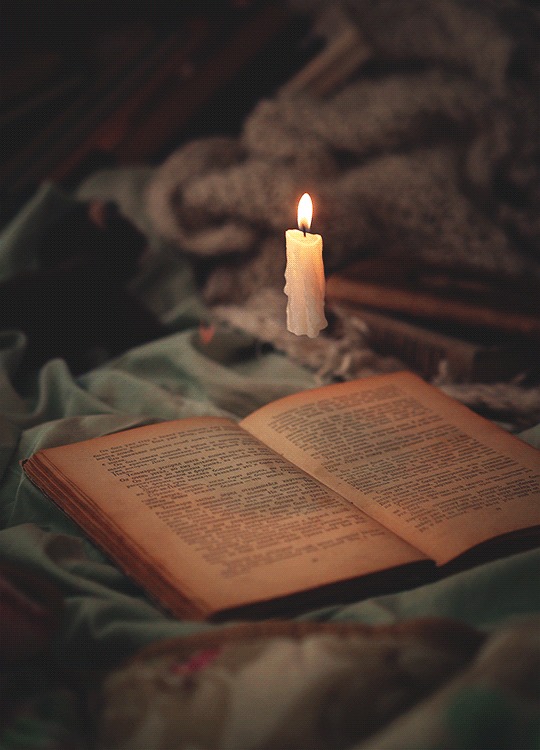
#writing#writblr#writing advice#writers block#just writer things#creative writing#fanfiction writing#writing motivation#writeblr#original writing#writing reference#writing tips#writers on tumblr#writing resources#writing tip#writing encouragement#writing community#writers#world building#point of view#editing#character creation#dialogue#mine.#words#writingtips#writingadvice
4K notes
·
View notes